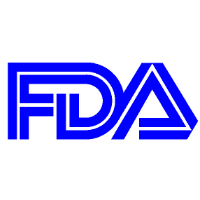FDA Approved 18 Animal Feed Additives Classified as “High Risk”

Last decade, the Food and Drug Administration (FDA) approved 18 antibiotic additives for use in livestock and poultry despite their “high risk” to humans.
These same additives would not be available today if they had been reviewed under current FDA guidelines, and yet the antibiotics are still on the market because the agency has not reconsidered its decisions from 2001 to 2010, according to a new report (pdf) from the Natural Resources Defense Council (NRDC).
The drugs were part of 30 penicillin and tetracycline antibiotics reviewed for “nontherapeutic use,” which meant helping animals grow and stay healthy while living in unsanitary farm conditions.
Eighteen of the 30 additives were classified as being a “high risk” for exposing humans to antibiotic-resistant bacteria through the food supply, the FDA said in documents obtained by the NRDC through the Freedom of Information Act.
“In addition, FDA concluded in their review that at least 26 of the reviewed feed additives do not satisfy even the safety standards set by FDA in 1973,” the NRDC said in an announcement.
Two of the additives were taken off the market by the manufacturer. But the rest remain available for use by farmers, and the FDA has taken no action to revoke its approvals for the other additives, according to the environmental group.
It has been 37 years since the FDA determined that use of antibiotics in animal feed creates risks for humans—and in fact proposed withdrawal of feed containing certain antibiotics—yet it hasn’t acted upon its own findings and, instead, has fought against court orders requiring it to do so, according to Homeland Security News Wire.
“The use of tetracyclines and penicillins in animal feed is part of a larger problem of antibiotic overuse,” the NRDC says, adding that 70% of all sales of “medically important antibiotics in the United States are for livestock use.”
The nontherapeutic use of antibiotics in livestock can lead to drug-resistant bacteria that endanger human health, scientists have warned, which is why the NRDC and other groups have called for the government and industry to reconsider this practice.
“FDA continues to knowingly allow the use of drugs in animal feed that likely pose a ‘high risk’ to human health. That’s a breach of their responsibility and the public trust,” Carmen Cordova, NRDC microbiologist and lead author of the report said, according to News Wire. “This discovery is disturbing but not surprising given FDA’s poor track record on dealing with this issue. It’s just more overwhelming evidence that FDA—in the face of a mounting antibiotic resistance health crisis—is turning a blind eye to industry’s misuse of these miracle drugs.”
-Noel Brinkerhoff, Danny Biederman
To Learn More:
Playing Chicken with Antibiotics (Natural Resources Defense Council)
Playing Chicken with Antibiotics: Previously Undisclosed FDA Documents Show Antibiotic Feed Additives Don’t Meet the Agency’s Own Safety Standards (Natural Resources Defense Council) (pdf)
FDA Allows Use of Antibiotics in Livestock Despite “High Risk” to Humans (Homeland Security News Wire)
35% of Food Additives Deemed Harmless were Evaluated by Manufacturer or Contractor Hired by Manufacturer (by Noel Brinkerhoff, AllGov)
- Top Stories
- Unusual News
- Where is the Money Going?
- Controversies
- U.S. and the World
- Appointments and Resignations
- Latest News
- Trump Orders ICE and Border Patrol to Kill More Protestors
- Trump Renames National Football League National Trump League
- Trump to Stop Deportations If…
- Trump Denounces World Series
- What If China Invaded the United States?






Comments